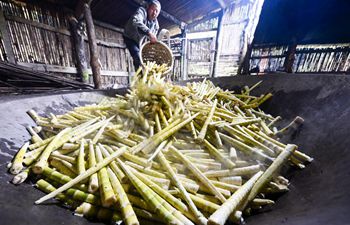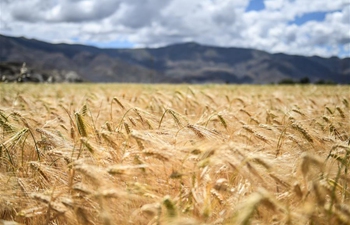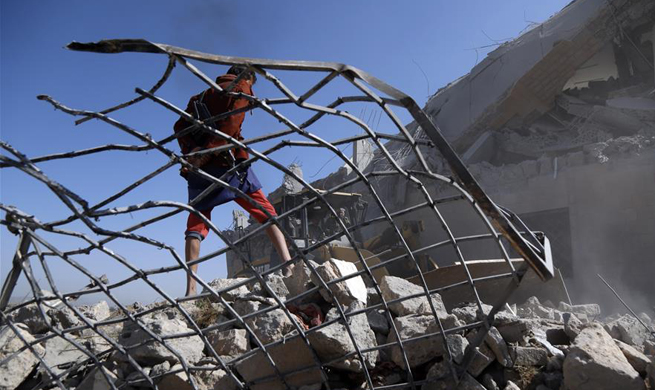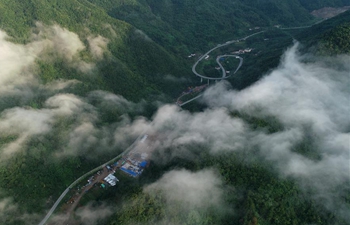NAIROBI, Sept. 1 (Xinhua) --Machakos County in eastern Kenya is generally sunny with dry weather conditions and often gets below normal rainfall.
Despite this condition, the weather trend has not deterred communities living in the region from farming activities.
"We have religiously prepared our farms year in and year out growing maize, beans, cow pea and mangoes even in difficult circumstances," said Beatrice Ndavi, a farmer.
Ndavi said that 2018 has gone in history as one of the worst years as they failed to make crop harvest due to drought and bad weather but instead harvested mangoes, oranges and other fruits.
With no insurance and loans, Ndavi revealed that most families resorted to selling their livestock to pay school fees and meet other domestic needs.
Soon after realizing this massive crop failure, an innovative, market-based Risk-Contingent Credit (RCC) scheme has been introduced to farmers in the region with the aim of offering a solution to farmers in the region.
In this program, participating farmers receive vouchers for high-quality inputs (seeds, fertilizers and pesticides) as well as agronomic training.
"Unlike first generation index insurance schemes, this project uses new modeling techniques to trigger payments if average rainfall is too low in any 21-day period throughout the growing season instead of using cumulative rainfall statistics from across the season as a whole," Liangzhi You, senior research fellow, environment and production technology division at International Food Policy Research Institute (IFPRI) said.
You said that the project that is spearheaded by IFPRI and the University of Greenwich's Natural Resource Institute (NRI) has incorporated an insurance firm and a banking institution to help farmers gain benefit from their farming activity.
He said that even though majority of banking institutions are willing to insure crops, climate change effects scare them as farmers in the region suffer perennial losses.
Apurba Shee, business development economist at University of Greenwich, and lead project officer, said that the project is a market-based solution to minimize agricultural risks by unlocking access to credit for farmers.
Shee said that the project that works with 1,150 households has seen positive results as uptake has reached 35 percent while majority of farmers got bank account for the first time, used certified farm seeds for the first time and majority to used fertilizer for the first time.
He said that under the project, farmers are advanced a loan of 100 U.S. dollars to purchase certified seeds and fertilizer.
Ndavi said that the project has given households a new lease of life as they are capable of securing loans, fertilizer and certified seeds that before was unthinkable.
"I used to harvest less than 10 bags of maize but since joining this project, I harvested 25 bags for the first time in my five hectare farm, "said the 58-year-old farmer.
Moses Kyalo, a small-scale farmer said that this locality has suffered because farmers do not have access to finance even when drought becomes so severe.
"This is a welcome move because it is introducing certified seeds where people were used to recycling traditional seeds," said Kyalo.
She said that the introduction of fertilizer in the region has equally helped revolutionized farming in the area.
According to You the project, which is collateral free, is expected to be upscale up in most regions of Kenya and other developing countries.
The implementers of this project are among 10 finalists selected as part of the Global Resilience Challenge, initially launched by the Global Resilience Partnership (GRP) in late 2016.













